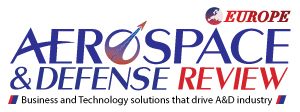The European aerospace sector has evolved into one of the most dynamic and technologically advanced industries globally. Europe has established itself as a leader in aircraft manufacturing, maintenance, satellite deployment, and space exploration. The demand for aerospace services has grown significantly, driven by increasing passenger travel, defence modernisation, sustainability mandates, and digital transformation.
The sector faces complex challenges, including geopolitical tensions, skill shortages, supply chain constraints, and the urgent need to decarbonise. The changing landscape necessitates a closer examination of the factors, technological implementations, applications, and current trends shaping the European aerospace services market, alongside the key challenges and their viable solutions.
Stay ahead of the industry with exclusive feature stories on the top companies, expert insights and the latest news delivered straight to your inbox. Subscribe today.
Technological Integration and Strategic Applications
Defence spending has increased across European nations due to the Russian invasion of Ukraine and heightened geopolitical tensions, prompting investments in advanced aircraft systems, space-based surveillance, and unmanned aerial vehicles (UAVs). The implementation of technology plays a central role in shaping aerospace services. Digital twin technology is now widely used to create real-time simulations of aircraft components, improving predictive maintenance and reducing downtime.
Advanced robotics and automation are enhancing the efficiency of MRO facilities, enabling faster turnaround times with fewer human errors. Augmented reality (AR) is being used for remote technician support and virtual training, enhancing workforce productivity and safety. The technology enables rapid prototyping and facilitates customised solutions for aircraft interiors, engines, and structural components. The integration of blockchain technology in aerospace supply chains has begun to gain traction, enhancing transparency, traceability, and quality assurance.
Aerospace services in Europe encompass a diverse range of applications, extending beyond commercial aviation—the defence sector benefits from maintenance and upgrade programs for military aircraft and surveillance systems. Space agencies and private companies engage in satellite assembly, ground control services, and orbital maintenance. Business aviation and urban air mobility (UAM) are emerging sectors that are driving innovation in service infrastructure, such as electric vertical takeoff and landing (eVTOL) vehicle support.
Market Impact and the Push for Sustainability
Several transformative trends are reshaping the European aerospace service industry. With the European Green Deal setting ambitious net-zero targets, aerospace companies are under pressure to reduce their carbon footprints. It is leading to the development of eco-friendly aircraft, sustainable aviation fuels (SAF), and more efficient flight operation services. Service providers are also investing in carbon offset programs, green hangars, and waste-reducing MRO processes. The rise of space commercialisation is another major trend. Europe is witnessing increased collaboration between public space agencies, such as ESA, and private firms in launching and maintaining satellites for communication, navigation, and climate monitoring.
The demand for in-orbit services, including debris removal and satellite life extension, is growing. It opens new avenues for service providers specialising in robotics, propulsion systems, and software-driven mission management. Companies are shifting from reactive to predictive and condition-based maintenance models. Cybersecurity has become a critical component of aerospace services, with increasing investments in securing data, networks, and avionics systems from cyber threats.
Regulatory frameworks are being developed to manage drone traffic, certify pilots, and issue remote pilot licenses. Companies are establishing urban vertiports and developing service ecosystems for electric and autonomous aerial vehicles. The overall impact of these trends is significant. Europe's aerospace services market is becoming more diversified, digital, and decentralised. Companies are forming joint ventures and cross-border collaborations to address service complexity, share research and development burdens, and streamline logistics. The market's ability to adapt to the trends will determine its competitiveness in the global arena.
Solutions and the Way Forward
The European aerospace services sector faces multiple challenges. As the industry becomes more digitised, there is a growing demand for technicians, engineers, and IT specialists who can operate advanced systems. The talent pipeline is not keeping pace in countries with ageing workforces or limited STEM education infrastructure. Industry players are partnering with universities, vocational institutes, and governments to create apprenticeship programs, digital upskilling initiatives, and remote training platforms. Diversity and inclusion efforts are also gaining momentum to tap into underrepresented talent pools.
Shortages of critical parts, delayed shipments, and reliance on single-source suppliers have led to service delays and cost escalations. To mitigate these issues, companies are diversifying their supplier bases, reshoring certain manufacturing operations, and utilising digital tools for enhanced inventory forecasting and logistics management. Regulatory compliance poses another challenge for cross-border aerospace services, as diverse standards, certification requirements, and bureaucratic hurdles can hinder innovation and market entry.
Access to EU funding programs, government subsidies, and public-private partnerships is enabling many companies to transition toward more sustainable operations. From predictive maintenance powered by AI to space mission support and sustainable aircraft servicing, the sector is expanding in both scope and sophistication. While challenges such as labour shortages, regulatory barriers, and supply chain vulnerabilities persist, strategic investments, cross-sector partnerships, and policy support are paving the way for a more resilient and future-ready aerospace services ecosystem. As the industry continues to evolve, Europe's proactive stance on innovation and sustainability ensures it remains at the forefront of global aerospace development.




